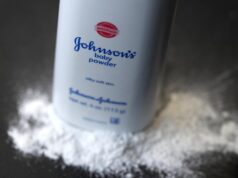Fun fact about me: I’m Cosmo’s resident skeptic (dare I say…party pooper?). If a beauty product or device seems too good to be true—ahem, lookin’ at you, blackhead pore vacuums—I’m the first one to say that it probably is. Buuut that was before I started noticing my hair thinning last year around my part. Cue the panic. Suddenly, I, too, was on the bandwagon, adding hair growth vitamins and hair gummies to my Amazon cart in bulk. I mean, if everyone swears by them, they gotta do something, right?!
At least, that’s what I told myself to keep my party-pooper brain quiet. What’s the real harm in poppin’ a few candy-flavored hair loss gummies, right? What’s the worst that can happen with some hair-growth vitamins, right? Right?! (Lol, wrong—but much more on that below.) And since I know I’m not the only one who has had this internal struggle, I went ahead and chatted with a bunch of dermatologists and experts to find out whether hair vitamins actually grow your hair or help with hair loss—and, more importantly, whether they’re safe to take at all.
Usually, hair-growth vitamins, gummies, and supplements are filled with a mix of “hair-friendly” ingredients, like biotin; folic acid; vitamins D, A, C, and E; and omegas, all of which supposedly work together to make your hair look longer, healthier, shinier, and stronger with continued use. That is, supposedly.
The thing is, supplements and vitamins are not FDA-regulated, meaning brands can kinda say and do whatever they want—and also add whatever mix of ingredients they want to their formulas. That’s not to say they’re all automatically scary and unsafe, but because they aren’t backed by government-approved data, the research you can find on hair vitamins is often…suspect.
“A lot of the studies you find in support of hair supplements are actually funded by the brands themselves,” says Dhaval G. Bhanusali, dermatologist and founder of Hudson Dermatology and Laser Surgery in New York City. Bhanusali, who specializes in hair loss, says “the literature is sketchy at best, and most derms agree that supplements are not very impressive.” Instead, your best bet is, ahem, talking to your doctor, and then trying some topical products instead:
Because there isn’t really an FDA-approved standard of ingredients, strengths, or formulations across hair vitamin brands, there’s never going to be an official yes or no answer as to whether hair supplements work (and more problematically, which formulations can mess with your body). But if you ask the experts—or me, who tried taking them for two months and was only left with breakouts—the answer to whether or not hair vitamins really work is pretty much a big ol’ NOPE across the board.
Plus, even though vitamins themselves are absolutely necessary and beneficial for your hair, they won’t do much if your body is already stocked with them—which it probably already is. “Most people get all the vitamins they need to manage their hair growth just from their diet alone,” says trichologist Dominic Burg, chief scientist at Evolis Professional.
Sorry (again), but there’s no definitive answer on whether biotin really helps grow hair. According to dermatologist Vivian Bucay, MD, clinical assistant professor at the University of Texas Health Science Center, if you’re taking a stand-alone biotin supplement, you’d need to take at least 5 milligrams daily for it to have the chance of affecting hair growth—but even then, there’s no guarantee it’ll do anything.
It’s also worth noting that biotin—just like any supplement—isn’t without its downsides: Excess biotin has the potential to trigger breakouts in some acne-prone individuals (which is what happened to me). More research is needed to understand the exact correlation, but what is known is that taking biotin can also affect major medical tests your doctor may perform. Basically, unless you yourself are a doctor (which, hi, why you here?!), make sure to discuss all supplement-related info with an actual MD.
I know what you’re thinking: What’s the harm in taking hair growth vitamins and supplements, just in case they do end up helping? But sadly, that’s not how vitamins work in a healthy (read: non-deficient) human. Even if you were to ingest triple the vitamins your body needs (um, don’t), you still wouldn’t reap triple, or even double, the hair growth rewards.
Why? Because “your body keeps only the vitamins it needs and then gets rid of the rest,” says Burg. It’s kind of like pouring water into a glass that’s already 100 percent full. So unless you’re actually missing some key nutrients—i.e., you’re vitamin deficient—you’ll usually end up peeing out the excess vitamins pretty soon after you ingest them.
A ton of things can actually cause hair loss and thinning (fun!). “There are a lot of women running around who are deficient and don’t realize it, because of either dieting, poor nutrition, or intense stress,” says Burg. And when you’re super stressed or not eating enough, “your body will shut down your hair growth first and redirect nutrients and energy to the organs that need it most,” he says, thus leaving you vitamin deficient, and your hair at a standstill.
And if you’ve ever experienced a severe bout of physical or emotional stress (hi, pandemic!), you might have noticed a sudden shedding of your hair a few months afterwards. “It’s a delayed reaction to the stress or diet that usually occurs three months later,” says Burg.
Of course, the only way to know for sure if your body is deficient is to have your levels tested by your doctor, so please don’t start popping pills just because the entire world is a dumpster fire right now—instead, wait for a physician to tell you it’s safe for you to try.
“There are some studies and anecdotal evidence that support the idea that low vitamin D levels can hinder hair growth, and a lot of people tend to have low vitamin D, even if they’re otherwise healthy,” says Dr. Bhanusali. And the same goes for lower iron levels. “A lot of derms see good results by prescribing patients iron supplements and vitamin D supplements,” he says, “although always check with your doctor before taking anything.”
If you are not vitamin deficient (which, again, only a doctor can tell you) but still want longer, healthier, stronger hair, then sadly, “supplements will probably do very little for you,” says Burg. Hey, maybe you’ll be the lucky wild card—again, there are no mass studies definitively saying yes or no—but if we’re talkin’ from a point of science here, your odds aren’t great.
Okay, so let’s pretend you’ve gotten your blood tested, you’ve gotten the green light from your doctor, you’ve made a deal with the hair gods, and you’re ready to try some hair supplements. Cool. Do not go overboard. Doubling up on supplements can be incredibly dangerous over time—some vitamins get peed out by your system, but others can build up to toxic levels—so test only one supplement at a time, and make sure that whatever you ingest is a reputable, well-reviewed formula. And, ideally, approved by your doc.
Ah, yes, the question you should be asking: If not supplements, then what? Luckily, you’ve got a ton of options:
Minoxidil is the active ingredient found in topical products like Rogaine and Hers. “We don’t know the exact mechanism for how it works, but we think a lot of it has to do with increasing blood flow to the scalp,” says Dr. Bhanusali. “It’s like giving more water to the plant to help it grow.” If you’re going to try minoxidil, you need to be consistent—use it every single day until…forever. And if you’re dealing with irritation or you’re not seeing results after a few months, head to your derm for prescription options (more on that below).
If your hair loss is rapid—i.e., you’re suddenly shedding a ton of hair—vs. gradual, there’s usually an underlying cause that should be addressed by a doctor or dermatologist ASAP. Topical steroids or steroid injections are often used as a short-term fix to help get the shedding under control, says. Dr. Bhanusali.
Yup, the magical acne-clearing pill can also be helpful for hair growth. “Oral spironolactone is a prescription blood pressure medication that helps block androgens—male sex hormones—in females, which can help increase hair growth over time,” says Dr. Bhanusali. Another (off-label) added bonus? “Many patients find that their breakouts disappear and their hair is less oily too,” he says.
Aka platelet-rich plasma therapy, a treatment where a doctor draws your blood, separates the plasma from it, then re-injects it into your scalp to help stimulate follicle activity. At least four sessions are usually required, aaand it’s not cheap (think: $600 to $1,200 per treatment). “I do think PRP can work in the right patient, but it’s not a guarantee,” says Dr. Bhanusali. “Studies generally show 20 percent of people get a significant improvement, 20 percent get slim to no results, and, anecdotally, the other 40 percent get maybe a 10 percent to 15 percent improvement.”
Historically, your only good hair-growth options were either a meh drugstore product at home or a pricey treatment in the office. But the rise of skincare compounding (i.e., when your dermatologist custom-cocktails skincare formulas specifically for your face) has officially led to new options for your scalp too—the latest of which is called HairStim.
“Your derm essentially evaluates your scalp and then can pick and choose whatever ingredients they think will help with hair growth, like higher-dose minoxidil, retinoic acid, finasteride, topical spiro, salicylic acid—whatever makes the most sense for the patient,” says Dr. Bhanusali. And unlike other hair supplements or prescription products that doctors can sometimes get a kickback to recommend (yup!), “doctors don’t get a cent for recommending HairStim,” says Dr. Bhanusali, who actually created the company. “It’s just another option for patients who aren’t finding success with OTC products but don’t necessarily want to take medications or can’t afford more invasive treatments.” FWIW, compound topicals aren’t usually covered by insurance. A HairStim formula, for example, costs about $60 and lasts between 30 and 60 days, depending on how much you’re applying and how big the “affected” area is (i.e., just your hairline vs. your entire head). “We usually see results between 10 and 12 weeks,” says Dr. Bhanusali.
And hey, if it doesn’t work? You’ve got every other option in this article to consider—almost all of which will still give you better results than supplements. Sry not sry.











